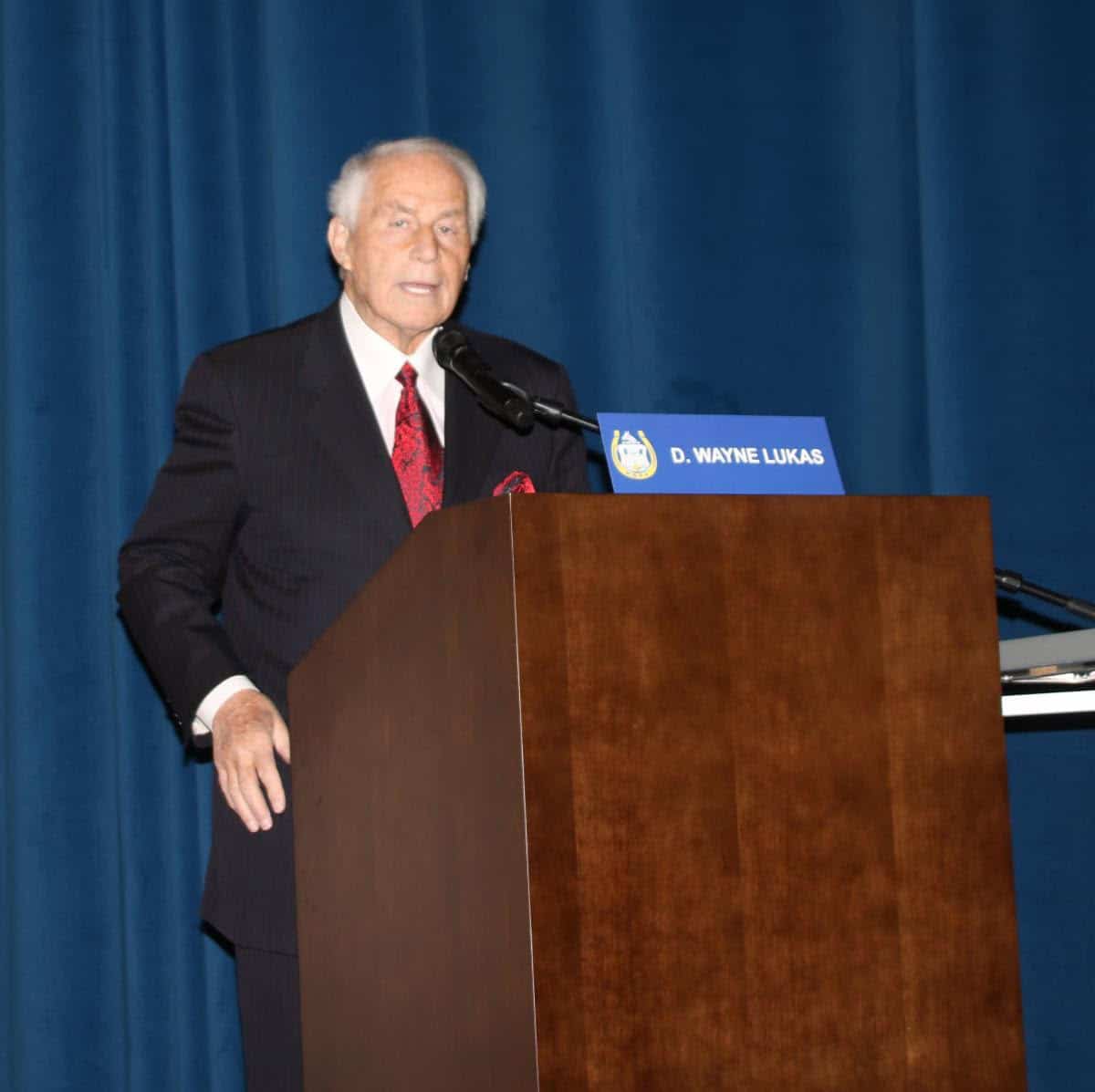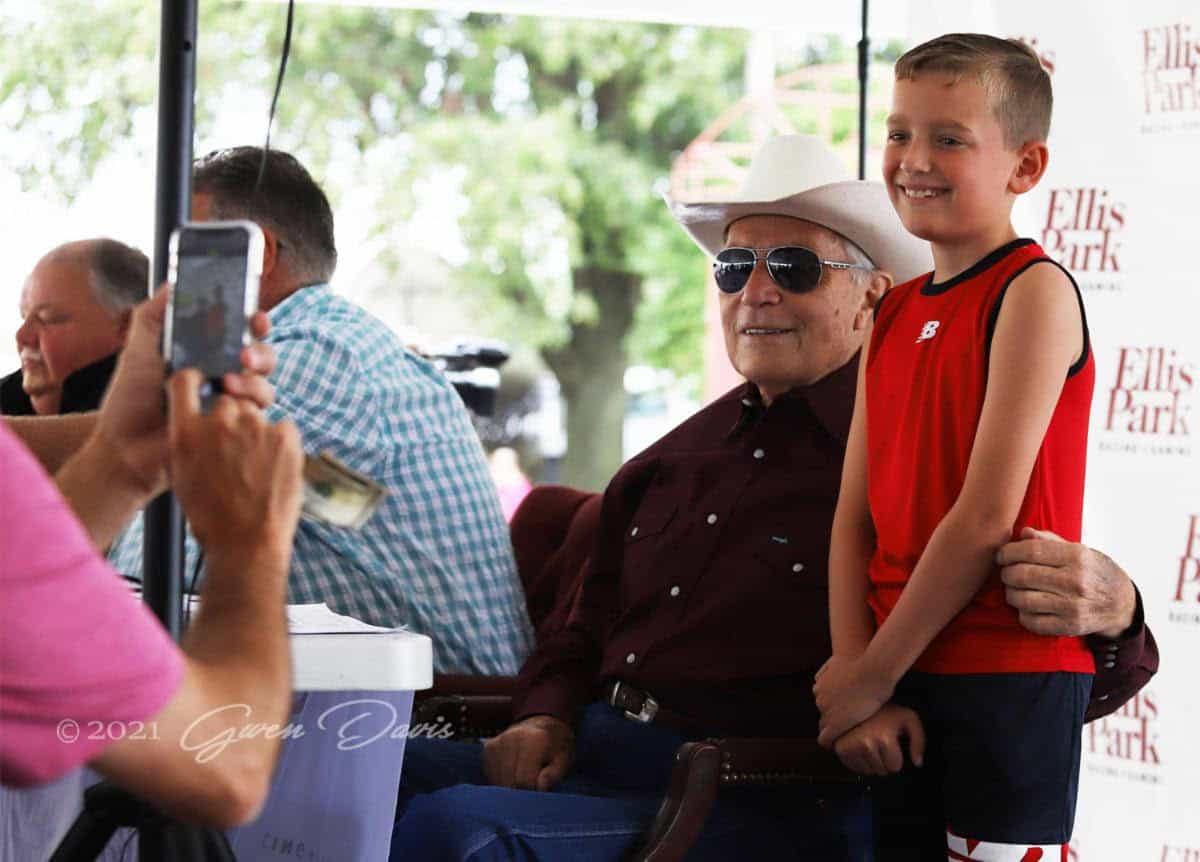Four Penn National Vets Face Federal Charges
Blood-Horse
In a move that sounded a lot like the other shoe dropping, federal criminal charges have been filed against four racetrack veterinarians involved in treating horses at Penn National Race Course near Grantville, Pa.
Late March 26, the U.S. Attorney’s Office for the Middle District of Pennsylvania announced criminal charges had been filed against racetrack vets Kevin Brophy, 60, of Florida; Fernando Motta, 44, of Lancaster, Pa., Christopher Korte, 43, of Pueblo, Col., and Renee Nodine, 52, of Annville, Pa.
The criminal charges against the vets follow the November 2013 federal indictments of three trainers at Penn National: David Wells, Sam Webb, and Patricia Anne Rogers, as well as clocker Danny Robertson. Wells pled guilty to race-rigging in state court, admitting to numerous race-day medication violations, and as part of his sentence will be incarcerated for three months; Webb’s case was thrown out of federal court; and Rogers’ case continues. Robertson entered a guilty plea in federal court.
In the most recent charges, the four veterinarians are accused of administering drugs to Thoroughbred race horses within 24 hours of when the horses were entered to race. Prosecutors say those administrations violate state law that prohibits the rigging of publicly exhibited contests, violate laws on administering drugs not pursuant to a valid prescription, and constitute misbranding of the prescription animal drugs in violation of federal law.
There may be other shoes to drop in the Penn National case as prosecutors said each of the veterinarians has accepted plea agreements in which they agree to plead guilty and cooperate with the U.S. in a continuing operation. The plea agreements are subject to court approval.
The alleged activity took place at various times beginning as early as 1986 and continued up to August 2014. The defendants allegedly conspired with horse trainers, whose identities are “known to the United States,” to administer the drugs in violation of the laws, rules, and regulations governing the conduct of Thoroughbred racing.
According to the charges, trainers allegedly placed orders for drugs. The defendants, after administering the drugs, allegedly backdated the billing records to avoid detection. The defendants allegedly submitted false veterinarian treatment reports to the Pennsylvania State Horse Racing Commission, omitting from those reports any reference to the drugs administered to horses at the track on race day.
The filing of these reports and the backdating of billing records were, allegedly, to further the conspiracy by concealing the illegal activity. The U.S. Attorney notes that these acts had the potential to defraud other owners and trainers whose horses were entered in the same race and defrauded the betting public as well.
The matter is being investigated by the Harrisburg Office of the Federal Bureau of Investigation, the Pennsylvania State Horse Racing Commission, U.S. Food and Drug Administration’s Office of Criminal Investigations, and the Pennsylvania State Police. Assistant United States Attorney William A. Behe is prosecuting the cases for the United States.
In a sport that typically relies on oversight from state regulators, federal law enforcement has taken the lead in Pennsylvania. The details of the case could provide a blueprint for other law enforcement officials interested in cracking down on illegal activity in horse racing.
Behe said that federal law enforcement will continue to be interested in addressing allegations of illegalities in horse racing. Jerry Russo, who served as Wells’ defense attorney, said earlier this month that he expected many more indictments over the next several months in Pennsylvania.
“I certainly know there’s federal interest in the Middle District of Pennsylvania and I’ve been told there is federal interest in other jurisdictions,” Russo said.
The maximum penalty in these cases under the federal statute is 2 years imprisonment, a term of supervised release following imprisonment, and a $200,000 fine. Under the Federal Sentencing Guidelines, the Judge is also required to consider and weigh a number of factors, including the nature, circumstances and seriousness of the offense; the history and characteristics of the defendant; and the need to punish the defendant, protect the public and provide for the defendant’s educational, vocational and medical needs. For these reasons, the statutory maximum penalty for the offense is not an accurate indicator of the potential sentence for a specific defendant.





